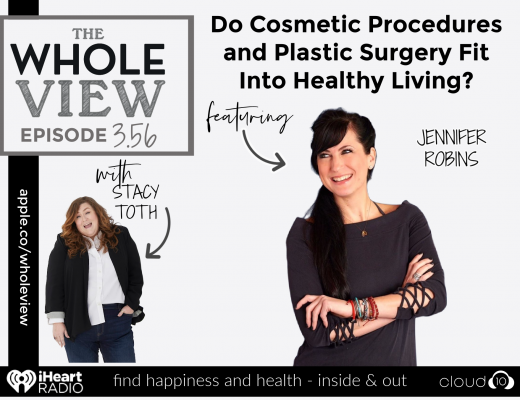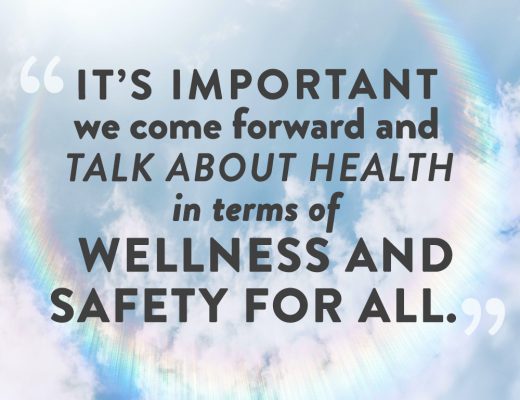Co-founder of Rocky Mountain Regenerative Medicine, Dr. Khoshal Latifzai talks to Stacy about empowering one’s own biology to heal itself through the scope of regenerative medicine. Dr. Latifzai stresses a wholistic approach to longevity, aging well, and living a full and capable life.
As a bonus follow-up to this episode, Stacy shares what’s she’s learned about NAD+, an essential coenzyme found in all living cells, and why the FDA issued a stop-sell on dietary supplement boosters containing NMN. She also walks through her process in considering supplements in her own life.

Find Dr. Khoshal Latifzai:
If you enjoy the show, please leave a review. Letting people know on iTunes or however you listen that it’s worth their time could change someone’s life!
Key Takeaways
Introductions
It’s not a sign of weakness to focus on yourself, to do things like meditation; and it’s not something you necessarily need to spend a lot of money on, but as long as you have a commitment to focus on yourself, surround yourself with really good people who have your best interest in mind. I think it builds the type of life that you can get a lot of mileage just by how long you live but also adds to the quality of your life because you’re a lot happier by putting yourself first. Not in a selfish way, but in a way that demonstrates a love of oneself and love of those around you. – Dr. Khoshal Latifzai
- Dr. Latifzai is the co-founder of Rocky Mountain Regenerative Medicine (RMRM), a medical clinic in Boulder, Colorado, that specializes in regenerative medicine.
- Born in Afghanistan, Dr. Latifzai emigrated to the United States in the 1990s at age 10.
- He is graduate of Dartmouth Medical School and Yale University Emergency Medicine Residency program and is is Board Certified in Emergency Medicine Additionally, he is a member of the American Society of Interventional Pain Physicians – Specialty Training in Regenerative Medicine.
- Continuing the pursuit that brought him to practice in 2003, caring for critical patients and performing life-saving procedures has always been a passion of his, which has culminated in medical missions to impoverished areas in Africa.
Regenerative Medicine
- Regenerative medicine is the newest player in medicine. It empowers one’s own biology to heal itself, rather than a heavy reliance on conventional pharmaceutical and invasive surgeries. The other component is optimizing one’s wellness so things don’t break down.
- Dr. Latifzai notes that regenerative medicine appeals to different physicians who see it through the lens of their own training (i.e. OB/GYN, orthopedics, etc), but hopes we can consider it more broadly.
- In general, Dr. Latifzai stresses a wholistic approach to anti-aging.
Strength and Considerations for Longevity
- Relating to Gabrielle Lyon’s work, Dr. Latifzai also believes in the importance of muscle and protein as we age. As posted on Instagram, he notes that “Increasing your muscle mass will set you up for resilience as you age – physically and mentally. Strength = longer healthspan. Did you know that as we age, loss of sex hormones decreases bone, muscle, and cardiovascular health? No better time than today to start to build that strength”. [source]
- So if longevity is the objective, if living an optimized, fulfilled life, a capable life where you’re independent of being reliant on your loved ones in your advanced years, how do you go about that? And so the process that we implement is looking at things through that lens, with that goal in mind. Dr. Latifzai suggests sitting down with your loved ones to talk about where you want to be. What do you want to be doing in 20, 40 years? Works backwards from that. How do you account for that?
- Most common causes of death: Cardiovascular disease, cancers, metabolic disease, and low-level trauma like falls and hip fractures. Dr. Latifzai believes we should be regarding longevity by backtracking to support ourselves – what risk factors cause cardiovascular disease and how can we test and support for those early? Let’s use the latest technology to assess for the risks.
- Consider if the goal is not becoming weak, one shouldn’t really wait until their older to change that!
- Additionally, women who are postmenopausal are likely to suffer with osteopenia or osteoporosis. Those darn hormones do so many things in our bodies to keep us spry. But we can keep it at bay by staying strong and working at it. Don’t just suffer, take an active role, be powerful. [source]
NAD+
- Stacy notes that we actually have a lot of science on protein – specifically popular these days are collagen which is made up of glycine, with anti-aging benefits. And a recent study found increased dietary Niacin improves muscle strength, quality and glucose homeostasis in adults over 40. Not to mention muscular benefits that come with more protein. [source] But another popular supplement right now are NAD+ boosters like NMN – or newer ones to market, NR and Trigonelline [source].
- Stacy and Dr. Latifzai talk briefly about NAD supplementation. Stacy goes into a deeper dive on the reserach of this supplementation in the bonus episode.
- NAD stands for nicotinamide adenine dinucleotide, a coenzyme in all living cells. The amount we produce in the body declines as we get older.
- Ultimately, NAD+ supplements discussion, the side effects, the effects on certain people are all still being studies, so proceed with caution.
- Dr. Latifzai notes that the fact is, aging is multi-factorial. It’s not this concept of trying to pin everything on one problem and then having the solution in hand is not unusual. It’s not exclusive to NAD+ therapy.
- There is a double-edged sword of grassroots medicine: Sometimes people hawking these therapies are steeped in the business side of it, rather than the
Stem Cells
- The bottom-line is your stem cells are declining a couple different ways as you’re getting older, and it really would behoove you to address that on some level.
- As the body ages, the number and function of stem cells tend to decline, they experience a reduction in its regenerative capacity over time. Additionally, the ability of existing stem cells to differentiate into specialized cells diminishes, limiting their role in tissue repair and regeneration.So while banking stem cells at a younger age can be valuable, banking as you age is still just as beneficial. It’s essential to consider individual health, family medical history, and the specific purposes for which the stem cells may be used when deciding the optimal time to bank them. [source]
Bonus: More on NAD+ Boosters
Stacy notes that, while we can boost our own NAD+ through exercise, this supplement seems to be all the rage. She started with finding mouse studies from 2020 but it was all hypothetical .Going to the root of that research was an interesting article from 2017 by world-renowned researcher, Harvard University’s professor of genetics and anti-aging researcher, David Sinclair. The 2020 study referenced him conducting human trials and his own experience taking NMN himself; he has said his lipid profile has improved dramatically and he feels more energetic and that his blood markers, at nearly 60 years old, are closer to those of a 31-year-old. So Stacy dove into his subsequent work on the topic!
The research
- Sinclair believes that NAD could be used to mimic the effects of cellular regeneration in humans. Sinclair’s approach is based on a broad view that links diseases of age such as cancer, diabetes, Alzheimer’s, and heart failure to common cellular processes. His lab aims to understand these processes and then use that understanding to develop medical therapies. [source] The latest publication Stacy found was from September 2023, where he shared a still unpublished study on mice shows that nicotinamide mononucleotide (NMN) extend’s mouse’s life span.
- A February 2023 human study in India that showed “Blood NAD concentrations were statistically significantly increased among all NMN-treated groups at day 30 and day 60 when compared to both placebo and baseline (all p ≤ 0.001). Blood NAD concentrations were highest in the groups taking 600 mg and 900 mg NMN. No safety issues, based on monitoring adverse events (AEs), laboratory and clinical measures, were found, and NMN supplementation was well tolerated…Clinical efficacy expressed by blood NAD concentration and physical performance reaches highest at a dose of 600 mg daily oral intake” [source].
- A December 2023 Japanese study showed results from human umbilical vein endothelial cells to demonstrate that NMN inhibits oxidative stress-induced damage [source].
- Another study in Japan in November 2023 summarized the ongoing dozen human clinical trials with NMN supplementation. It referenced in vitro/in vivo studies, but that’s not sufficient for knowing efficacy and safety in humans. But did find, “Several NMN clinical trials were conducted on healthy volunteers, and the results showed that NMN increased aerobic capacity during exercise training [145], improved muscle strength and performance during the 30-second chair stand test and walking speed [141], decreased blood pressure, pulse pressure, and blood glucose [146], and increased the telomere length of PBMCs [147]. [source]
Possible Risks
‘There’s a lot of buzz about taking NAD+ precursors for their anti-aging effects, which is based on a lot of great science,’ said Albert H. Kim, MD, PhD, an assistant professor of neurological surgery and the senior author on the study. ‘We didn’t directly demonstrate that taking NAD+ precursors makes tumors grow faster, but one implication of our work is that if you want to take anti-aging NAD+ precursors, you might want to keep in mind that we don’t yet understand all the risks.’ [source]
- There were several articles that said supplementation could worsen cancer. Specifically one found patients with high expression of an NAD+ pathway gene known as NAMPT died sooner [source].
- The findings of this paper suggest that NAD supplementation should be discussed with a healthcare practitioner if you have a strong family history of cancer, have cancer, or have had cancer. Any given subject should first speak to their healthcare provider when considering NAD and possibly perform screening tests. However, NAD may fend off many other age‐related diseases and prevent cancer from developing, so developing strategies to purge senescent cells from the body prior to NAD supplementation should also be considered. [source]
- However, one review showed it’s anti-tumor in a handful of studies, highlighting the role of NAD+ as a key factor in the anti-tumor T cell response. [source]
FDA Ruling
- Interestingly, the provision cited by the FDA – Section 201(ff) of the FEDERAL FOOD, DRUG, AND COSMETIC ACT is the definition of “dietary supplement” which NMN supplements were filing under, and as defined is intended to supplement the diet that bears or contains dietary ingredients or metabolites and is intended for ingestion and is labeled as a dietary supplement. When used as or in a dietary supplement under the conditions of use and dosages and is NOT a new drug or licensed as a biologic. Thus defining dietary supplements as a food within the meaning of this Act. [source]
- The FDA isn’t stating concern over the safety of NMN, but rather protecting pharmaceutical interests as they develop new drugs while also serving to prevent companies from bypassing the drug approval process. The FDA stated that a pharmaceutical company had submitted an Investigational New Drug (IND) application for NMN. A citizen’s petition is underway, but we may not know what’s to come for some time.
- So despite the FDA strongly advising against marketing NMN as a dietary supplement, they are still available.
Studies, References & Products
- Orthopaedic anesthesia – part 1. Commonly used anesthetic agents in orthopaedics
- Orthopaedic anesthesia – part 2. Common techniques of regional anesthesia in orthopaedics
- Genetic association of Alzheimer’s disease with multiple polymorphisms in alpha-2-macroglobulin
- The Science Behind NMN–A Stable, Reliable NAD+Activator and Anti-Aging Molecule
- Harvard Magazine: Anti-Aging Approaches
- Harvard Medical School: The Sinclair Lab Research
- Siteman Cancer Center: Pathway linked to slower aging also fuels brain cancer
- Nad.com: The Top 10 Potential Benefits of NAD+ Supplements
- The efficacy and safety of β-nicotinamide mononucleotide (NMN) supplementation in healthy middle-aged adults: a randomized, multicenter, double-blind, placebo-controlled, parallel-group, dose-dependent clinical trial
- The Safety and Antiaging Effects of Nicotinamide Mononucleotide in Human Clinical Trials: an Update
- Healthnews.com: FDA Bans NMN as a Dietary Supplement: Why and What Happened?
- MIB-626, an Oral Formulation of a Microcrystalline Unique Polymorph of β-Nicotinamide Mononucleotide, Increases Circulating Nicotinamide Adenine Dinucleotide and its Metabolome in Middle-Aged and Older Adults
- Nicotinamide mononucleotide inhibits oxidative stress-induced damage in a SIRT1/NQO-1-dependent manner
- Increased Dietary Niacin Intake Improves Muscle Strength, Quality, and Glucose Homeostasis in Adults over 40 Years of Age
- The Key Role of NAD+ in Anti-Tumor Immune Response: An Update
- Nicotinamide adenine dinucleotide and the sirtuins caution: Pro‐cancer functions
- A New NAD+ Precursor More Stable than NMN and NR: Trigonelline
- The Whole View, Season 3 Episodes:
- The Whole View (formally the Paleo View), Episode 369: Lets Talk About Menopause
- FEDERAL FOOD, DRUG, AND COSMETIC ACT SEC 201 (ff)
Sponsors
- ButcherBox.com/WHOLEVIEW | Use code WHOLEVIEW get $20 off your first order
- Beautycounter.com/StacyToth | Use code CLEANFORALL20 for 20% off sitewide on your first order or go to Realeverything.com/podcast
Want more info on our Real Life? Healthy recipes, parenting tips, and general lifestyle stuff goes out in our Real Everything newsletter, join here.
So never want to miss a post, sale, or deal? Join my Healthy Inside & Out e-mail list for more info on non-toxic living and safer skincare!




